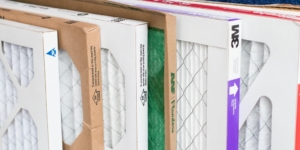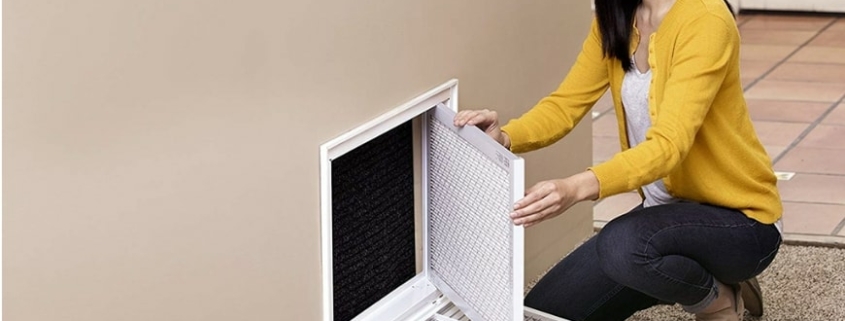When Should I Change The Furnace Filter?
Being home more often makes dust bunnies multiply, the dog’s hair is piling up, and allergies can worsen— it must be the furnace filter!
To change a furnace filter is the easiest way to maximize the efficiency of your heating system and to aid in purifying your home’s air.
Furnace filters are designed to trap dust, dirt, and airborne particulates before they can get into the system and damage the fan or the heating coil. More expensive filters perform the same role, however, they will also enhance the air quality in your home by trapping bacteria, pollen, and mildew, and mold spores. Because most of the air in your house circulates through your HVAC system, furnace filters are your first line of defense against dust and airborne allergens.
So when is the best time to change your furnace filter?
Here is a general rule of thumb for how often to change furnace filters.
Typically you should change a basic fiberglass furnace filter every one to two months and paper furnace filters should be changed every four months to a year.
Electrostatic furnace filters last the longest, even several years if cleaned every four to six weeks. These furnace filters should be cleaned more frequently if you have multiple pets, excessive dust buildup, any smokers in your home, or if you run your heating system fan frequently.
What type of furnace filter is right for you?

There are numerous options available in furnace filtration.
The most basic is a disposable fiberglass filter within a cardboard frame, usually one to two inches thick and available in a variety of sizes. The fiberglass interior traps larger particles of dust and dirt.
A step up from this filter is a disposable pleated paper filter, which will remove smaller particles of dust, dirt, and pollen. These are a bit pricier but will last anywhere from four months to one year.
The most expensive filters are reusable electrostatic filters, which are designed to trap even smoke and smaller airborne particles. Which is a great option for residents in wildland fire areas where the smoke gets heavy during fire season. These can be rinsed clean with a garden hose as needed and reused for several years if properly maintained.
Some filters—in both disposable and reusable varieties—are rated as “antimicrobial” or “high-efficiency particulate air” (HEPA) and are specially treated to trap microorganisms, including bacteria, mildew, fungus, mold, yeast, and algae. If someone in your family has allergies, it may be worth investing in this filter type.




Leave a Reply
Want to join the discussion?Feel free to contribute!